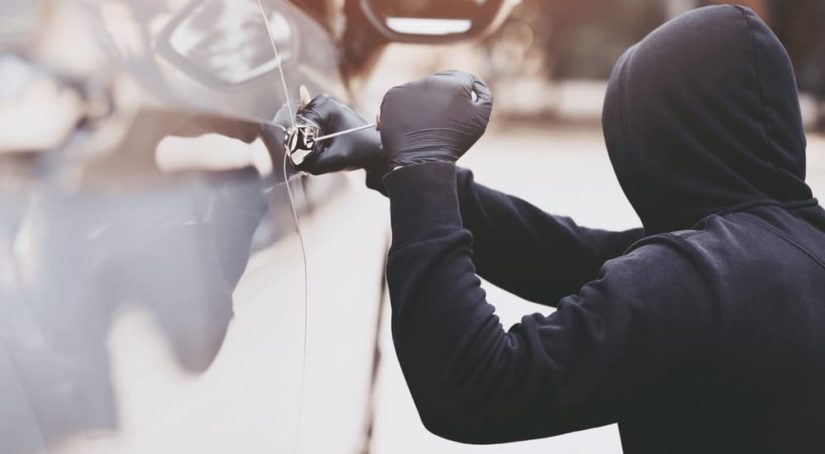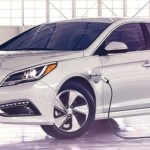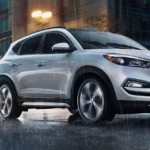Shopping for a used car is tricky enough when you’re just trying to think about the size and type of vehicle that will work well for you, along with safety features and other options. The last thing you need to worry about is how easy your car will be to steal, yet that’s absolutely something that should be on your mind right now. It seems that a large number of Hyundai and Kia models are so easy to steal that it’s not only become a social-media trend, leading to huge numbers of car thefts and joyrides, but it’s even likely a city here in the US will sue the manufacturers.
St. Louis, Missouri, is one of several cities experiencing an epidemic of Kia and Hyundai thefts at the moment, and things have reached the point where the city council is threatening legal action. That might seem ridiculous, but this is far from the first strike for these two car brands––there have been numerous class action lawsuits brought against them by owners who are upset about how easy their cars were to steal. St. Louis has simply declared this situation to be a threat to the public good, and therefore they’re looking to step in and take direct action.
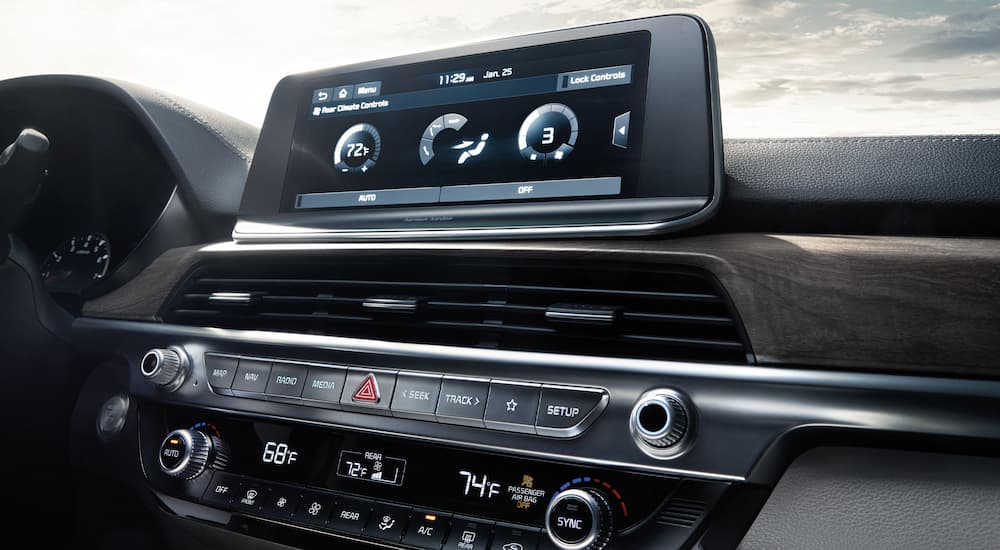
Just How Bad is It?
When I first saw news stories about a city in the US getting ready to sue car companies for making their vehicles too stealable, I had to double-check that I wasn’t reading a headline on The Lemon or a similar satire news site. Was this just a case where a city council was trying to get attention or stir up voter support as we headed into November? Or was there actually something here that justified such an extreme reaction?
Turns out it’s the latter. Hyundai and Kia models aren’t just being broken into and stolen; they’re specifically being targeted because they’re easy to steal. Ridiculously easy. The problem is twofold, and, honestly, it’s all the manufacturers’ fault. First, these models lack an engine immobilizer, which makes it so the engine won’t start unless it can detect a chip in the key fob. Engine immobilizers are required by law in all vehicles in Europe, but here in the US, they’re not mandatory. Kia and Hyundai offered them as an available option, so high trims featured immobilizers, but starting trims didn’t.
The second issue, some would say the bigger of the two, is that these Kias and Hyundais are just stupidly easy to steal. Some folks figured this out and started spreading it across social media; in particular, it was quite the craze on TikTok this summer, so much so that people started calling themselves “Kia Boys” or “Boyz” and stealing these vehicles to go joyriding. It was even a challenge, as young people encouraged each other to break into and steal cars simply for the proverbial “lulz,” not to keep them or sell them to a chop-shop like in a Hollywood movie.
Now, when I say these vehicles are stupidly easy to steal, I mean it. Without getting too detailed about it, all a person has to do is break into a car, bust open the steering column, and plug a USB cable into the ignition area to start the car. I want to make this clear: you don’t have to download a virus into the car or use a laptop to get it to start like some kind of super hacker in a TV show. Literally, all you need is a USB cable, and it will trick these Kia and Hyundai models into starting. Yes, it’s really that bad.
Which Models Are Affected?
At the moment, the specific vehicles that seem to be an issue are Kia models from 2015 or later and Hyundai vehicles newer than 2012. That’s as specific as it gets, so cars from these model years are what’s being targeted because they have these twin flaws that make them ever-so-easy to steal. In St. Louis, thefts of these models are up by about 400% compared to last year, while thefts of other vehicles are down throughout the city.
However, let’s say you’re looking at a Kia from 2022 or a model that’s a high trim and has a vehicle immobilizer––you should be good, right? I want to remind you that a large number of the people stealing these vehicles are teenagers going for joyrides after being inspired by social media. These are the same kinds of folks who would eat a spoonful of cinnamon or actual Tide Pods just because the internet told them to, and they want to score points with random people on social media.
We’re not talking about criminal masterminds here who understand nuance when looking for a car to steal. They won’t realize they can’t just use a USB cable to steal a Kia until they’ve already broken the window, got inside, and busted the steering column to try it. By then, sure, they’ll take off and leave your car behind, but they’ve already done plenty of damage. That’s assuming they don’t do more damage out of spite because you’ve ruined their plans for the night.
In other words, as far as I’m concerned, all Kia and Hyundai models should be avoided if you’re shopping for a car right now. Yes, Kia and Hyundai have now made engine immobilizers standard on all of their models for 2022 and beyond, but again, how many of these thieves are going to stop and figure out which model year they’re looking at? They don’t care about the trim level and whether they’re looking at a 2022 Kia Sorento or one from 2019; caution is not exactly what they’re fueled by.
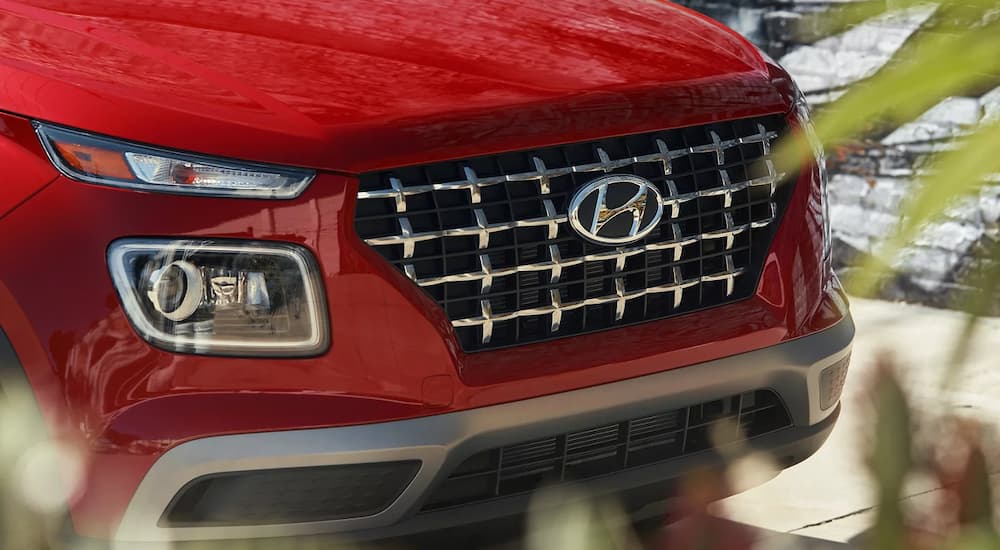
What to Know While Shopping
So what does this mean for you if you’re heading out to a dealership to shop for your next vehicle? As I said: skip Hyundai and Kia entirely. I don’t like saying that because those are both brands that are otherwise great options, particularly because they’re such budget-conscious vehicles in a market that’s not exactly buyer-friendly. But when that low price comes at the expense of risking having your car stolen at any moment, I don’t think it’s worth it.
Despite several class-action lawsuits from owners, both Hyundai and Kia have either remained silent on this situation or refused to take real action to fix it. They’ve managed to dodge much in the way of culpability because the engine immobilizers have been available, just not standard. So their argument is that this isn’t a design flaw or defect but a choice on the part of the buyer not to get the immobilizer. That’s technically true; it’s also technically true that they’re meeting the legal standards here in the US for safety and security even by not including them, but both of those excuses are pretty scummy.
Kia and Hyundai could fix this with a recall that includes installing engine immobilizers on vehicles at their expense, but they’re not going to do that out of the goodness of their hearts. Until that happens––and maybe lawsuits from cities will make it happen (if St. Louis moves forward, I doubt they’ll be the last)––then it could be safe to own a Kia or Hyundai again. Until that time, you’re just painting a big target on your vehicle, even if it’s secure. If you already have one of these models, then I suggest you act like it’s the mid-‘90s and buy a Club to put on your steering wheel. It’s not a great solution, but it’s a visible deterrent that will keep your vehicle where you parked it.
